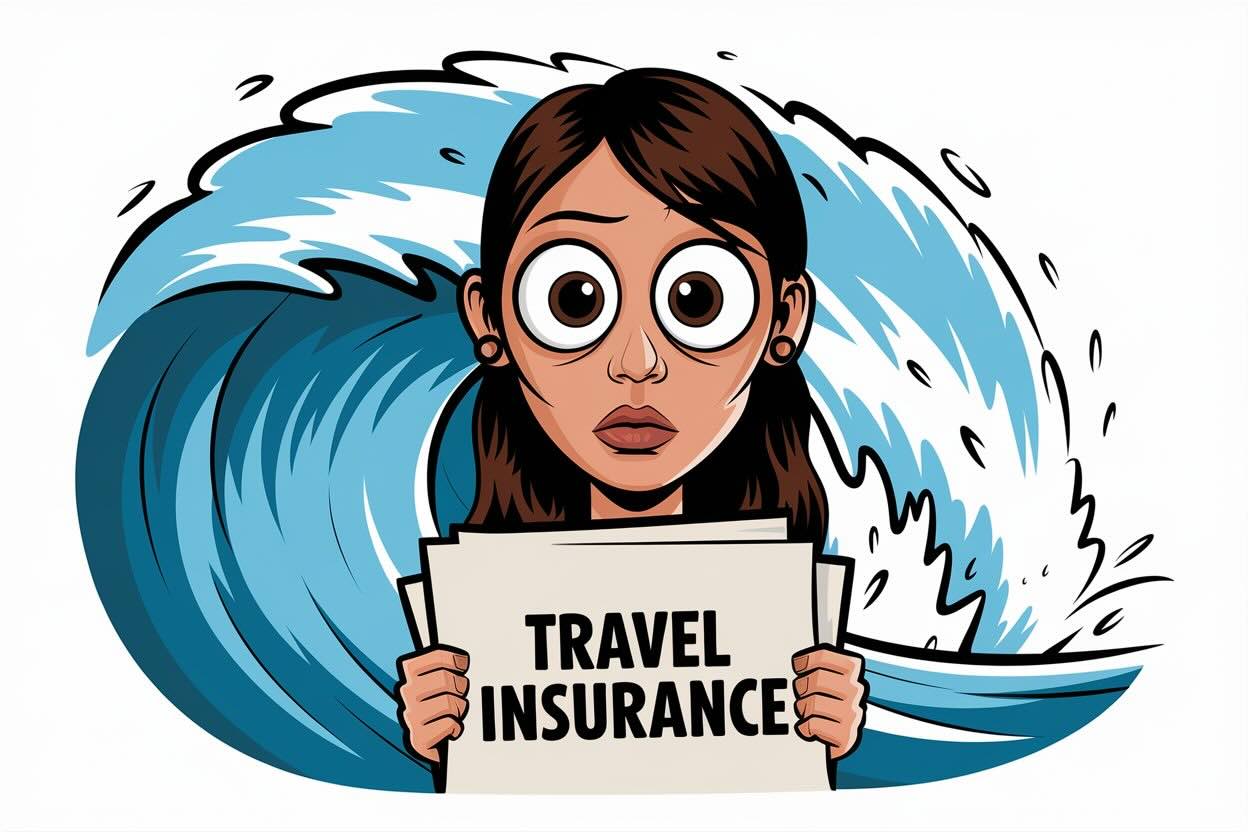Going somewhere in 2025? Chances are, you’ll need travel insurance.
With wars raging in the Middle East and Europe, travelers are more nervous than ever about their upcoming trips.
A new survey by Medjet shows the extent of these fears. A full 99 percent of its members said they had concerns about their safety abroad.
“With elevating global tensions — and many elevated travel warnings — that’s no surprise,” says John Gobbels, chief operating officer of Medjet.
Which policy should you buy?
But where can you find a good travel insurance policy? There are popular review sites with star ratings that claim to offer an easy answer. And there are novel-length blog posts optimized for search engines that try to tell you where to find the best travel insurance policy.
But they don’t.
It comes down to several tried and true strategies for finding the best travel insurance. And fortunately, we have something hard to find: an actual answer.
How to find travel insurance in 2025
If you’re confused by the new “star” ratings for travel insurance, take a number. The reviews claim to use an objective set of criteria to determine which travel insurance policy is the best for your post-pandemic vacation or business trip.
For example, a plan with pandemic trip cancellation and medical benefits or “cancel for any reason” coverage might score higher. Policies without those benefits will only get one or two stars. (Related: Do I need travel insurance for my summer vacation?)
But that assumes a lot about you. Specifically, it says a “cancel for any reason” policy or a COVID trip cancellation is the most important thing for travelers now. That may not be true. Travel insurance has lots of benefits, including coverage for delays, interruptions, lost luggage, and medical benefits.
I list them in my definitive guide on how to find the best travel insurance.
Star ratings also fail to consider that state laws regulating travel insurance are not uniform. Also, the kind of plan you buy may depend on your age.
Bottom line: Star ratings for travel insurance are about as reliable as star ratings for hotels. They’re subjective, they oversimplify a complex purchase, and they can be highly misleading.
Beware of travel insurance blogs
You can find another equally confusing “answer” online. Maybe you’ve seen those seemingly endless blog posts on the best travel insurance for your next trip. They list one writer’s example of buying travel insurance for a fictional vacation. They list screenshots of each travel insurance company’s web page and then cut and paste the terms and conditions.
These posts are often created by an AI to rank highly on Google. But they don’t help you.
Think about it. How do screenshots of someone buying travel insurance actually help you buy travel insurance? How do sample quotes from one person’s made-up trip to Europe assist you with a travel insurance purchase in any meaningful way?
And as for the cut-and-paste terms, come on. Didn’t your favorite travel expert tell you to read every policy — not the excerpt — before you buy?
No wonder people are confused and frustrated. Meaningless, arbitrary stars and navel-gazing, keyword-stuffing blog posts will definitely not help you find the best travel insurance policy after the pandemic.
What the best travel insurance policy ratings don’t have (but we do)
A few years ago, this site received lots of questions from readers about travel insurance. That’s because the internet search engines knew we had the best information about travel insurance. But insurance is big business, and before long, companies that sell insurance figured out how to bend Google to their will.
It’s time to remedy that.
I know we can do it because we have something the other sites don’t. We have thousands of real travel insurance cases in our database. Our files are filled with real problems with real resolutions.
Choosing the best travel insurance policy for your next trip after the pandemic is difficult. In addition to the right policy, you want to go with a company that will honor a valid claim.
The sites that say they can give you the name of the best travel insurance policy are offering you an incomplete, one-size-fits-all answer. They don’t have any information about claims disputes. Nor do they have any data about the resolutions of those cases.
And there’s a reason for that: They don’t want to help you. Their goal is to sell you a policy through an affiliate link.
How to determine if you need travel insurance in 2025
I’m not going to try to sell you a travel insurance policy. In fact, there are many times when you’re better off without a policy. That includes a road trip where you’re staying with relatives or if your credit card already covers you.
I have colleagues who say you should never travel without insurance. That’s nonsense.
But travel insurance can still be worth considering, and there are no proven shortcuts — no sites with star ratings that you can turn to and just click on the policy with the most stars. Making a snap decision based only on star ratings or reviews may leave you with not enough coverage — or coverage you don’t need.
So how do you do it?
Talk to a professional
Discuss your insurance needs with someone who understands insurance. It can be a qualified travel advisor or insurance professional. If you have a question about insurance, a pro can help you sort out the often complicated issues. No purchase is required.
Do your research
You can’t skip this step. Visit the major travel insurance company sites or a site like TravelInsurance.com where you can compare multiple policies before you make your selection. Remember, there’s no site you can visit that magically answers all of your travel insurance questions and tells you which policy to buy. And any site that claims to do that is not being honest. Travel insurance is a complicated and often confusing product. If you’ve ever read a policy, you know what I’m talking about. Don’t let anyone oversimplify the process and make you believe research is irrelevant. Keep in mind, you generally have 10 to 14 days after your travel insurance purchase before it becomes nonrefundable. So use that time wisely — read through the entire policy to make sure you’ve selected a policy that fulfills all your needs.
Read the reviews — and ask tough questions
I’ve always said that star reviews are just one data point for you to make a decision. To find the best travel insurance policy after the pandemic, you have to go beyond the ratings. Ask hard questions like, “Does this travel insurance cover a COVID quarantine?” and “Do I need all of this coverage?” And, “What’s the worst that could happen?” Chances are, the ratings you see won’t address your travel insurance needs.
So what should you do about travel insurance in 2025?
Unfortunately, there is no “best” answer here that applies to everyone. You can’t publish a snappy headline and tell everyone to buy their insurance policy from one company. Some of you don’t need a policy. Others should buy from one company that meets their needs. And still others from another.
As I said, it’s complicated.
What I can do, though, is guide you through the process.
And, of course, I’m happy to answer any questions. No shortcuts.
One of the most common questions I get is: With all the travel you do, where do you buy your insurance? I have a six-month policy through Faye (it covers me outside the U.S., which American travel insurance won’t on an annual basis) and a Medjet membership, which includes a FocusPoint evacuation benefit. I also have a separate health insurance policy through Cigna.
But remember, your travel insurance needs could be different from mine. You may not need that much insurance — or any at all.




